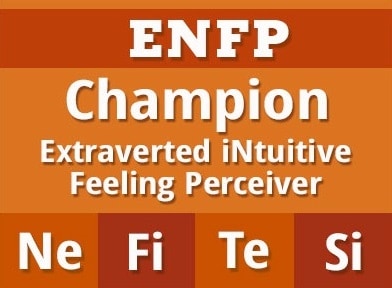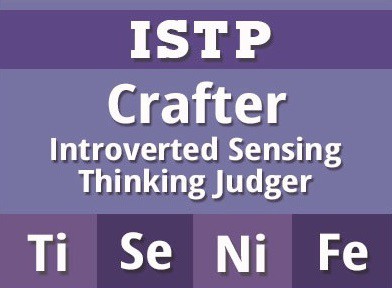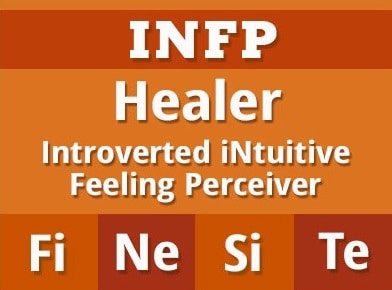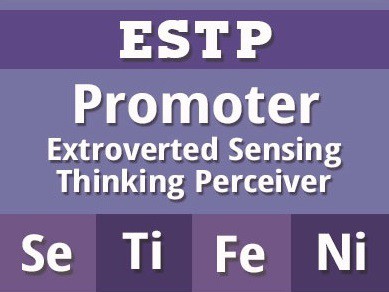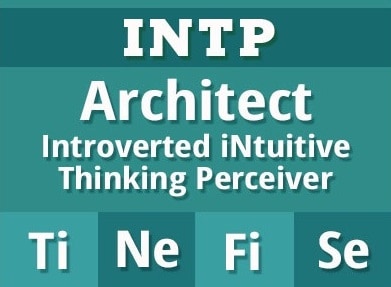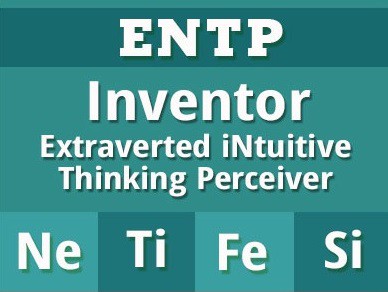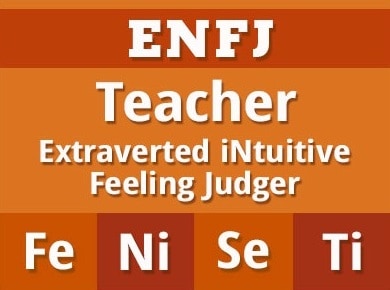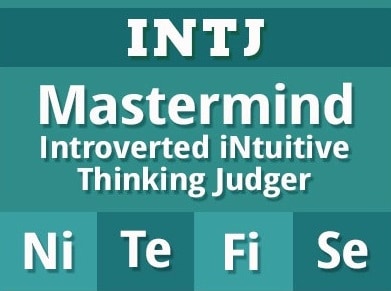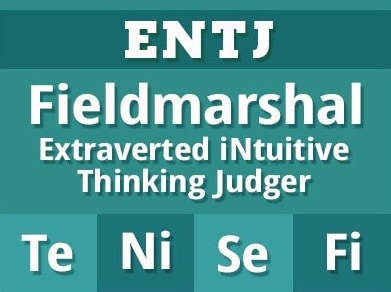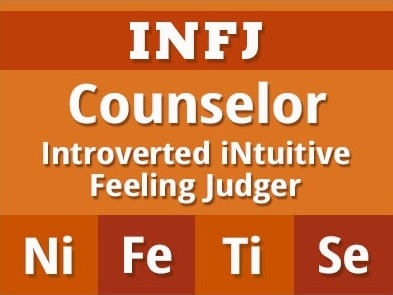While some people may view the Myers Briggs Type Indicator or MBTI as a bunch of useless mumbo jumbo akin to astrology, there are many who believe that it is a useful tool in understanding people. In fact, a lot of businesses use the MBTI to help their employees reach their full potential and learn more about how they truly work.
Although there are 16 Myers Briggs personality types, this list covers the 10 rarest types. The population statistics in this list are based on the Myers Briggs Company’s research and only represent the United States since this is where MBTI originated.
- ENFP
- ISTP
- INFP
- ESTP
- INTP
- ENTP
- ENFJ
- INTJ
- ENTJ
- INFJ
Strengths: Enthusiastic; Creative; Warm; Future-oriented; Individualistic; Caring; Optimistic; Insightful; Playful; Spontaneous
Weaknesses: Poor practical skills; Overthinking; Easily stressed; Highly emotional; Has difficulty focusing
Notable People Who Have These Traits: Quentin Tarantino; Will Smith; Robin Williams; Kelly Clarkson; and Russell Brand

photo source: Wikimedia Commons via czarinacleopatra
As a highly intuitive type, if ENFP isn’t careful they can fall into the trap of assuming and anticipating other people’s motives and actions. This leads ENFP to overthink and they can have a hard time taking things at face value. Additionally, ENFPs are easily stressed and have a tendency to get overwhelmed.
Did You Know?
ENFPs are some of the strongest communicators and they often choose jobs in counseling, teaching, religion, or the arts.
Strengths: Logical; Quietly analytical; Practical; Curious; Problem-solver; Exact; Hands-on; Adventurous; Observer
Weaknesses: Stubborn; Insensitive; Private and Reserved; Easily bored; Engages in risky behavior
Notable People Who Have These Traits: Michael Jordan; Clint Eastwood; Tom Cruise; Milla Jovovich; and Bear Grylls

photo source: Wikimedia Commons via czarinacleopatra
Unlike some other introvert types, who may be more social, ISTPs are truly independent. They can easily get lost in their work and would rather have complete silence than suffer through small talk. This makes it difficult to get to know an ISTP.
Did You Know?
Due to their fierce independence and tendency to get bored easily, ISTPs often struggle with commitment, especially when it comes to romantic relationships.
Strengths: Quietly caring; Compassionate; Creative; Idealistic; Empathic helpers; Inquisitive; Independent; Adaptable
Weaknesses: Too idealistic; Too altruistic; Impractical; Take things personally; Difficult to get to know
Notable People Who Have These Traits: William Shakespeare; Julia Roberts; William Wordsworth; J.R.R. Tolkien; and Alicia Keys

photo source: Wikimedia Commons via czarinacleopatra
If left unchecked, an INFP’s selflessness can be detrimental as they can get too caught up in their quest for good and neglect their own basic needs. Additionally, INFPs often feel let down over and over again due to their extreme idealism.
Did You Know?
Since INFPs hold themselves and others to such high standards, INFPs are the second highest of all the types to report marital dissatisfaction.
Strengths: Excitement seeking; Pragmatic; Easygoing; Observant; Realistic; Efficient; Spontaneous; Troubleshooter; Experiential
Weaknesses: Insensitive; Impatient; Risk-prone; Unstructured; Defiant; May miss the bigger picture
Notable People Who Have These Traits: Ernest Hemingway; Madonna; Samuel L. Jackson; Nicolas Sarkozy; and Eddie Murphy

photo source: Wikimedia Commons via czarinacleopatra
With so much energy to burn, ESTPs can be impatient and don’t know when to slow down. Also, since ESTPs like to keep things lighthearted, they have a hard time dealing with serious emotions and can feel uncomfortable in emotionally charged situations.
Did You Know?
ESTPs often have careers in marketing, skilled trades, business, and law enforcement.
Strengths: Logical; Conceptual; Detached; Intellectually curious; Questioning; Adaptable; Independent; Objective
Weaknesses: Critical; Absentminded; Condescending; Withdrawn; Insensitive; Hates rules and guidelines
Notable People Who Have These Traits: Albert Einstein; Bill Gates; Isaac Newton; Rene Descartes; and Stanley Crouch

photo source: Wikimedia Commons via czarinacleopatra
While INTPs may be book smart, when it comes to people they can be clueless. They are often detached and because they know so much, INTPs can come across as condescending and insensitive. Although INTP likes to share ideas, they get impatient when they have to explain things and people can’t keep up with what they’re saying.
Did You Know?
Popular leisure activities for an INTP include reading, art and cultural events, chess and other strategy games, writing, taking classes, working with computers, backpacking, hiking, and meditation.
Strengths: Energetic; Inventive; Theoretical; Analytical; Change oriented; Adaptable; Independent; Novelty seeking; Ingenious; Verbal
Weaknesses: Insensitive; Very Argumentative; Intolerant; Can be unfocused; Dislike practical matters
Notable People Who Have These Traits: Mark Twain; Thomas Edison; Tom Hanks; Celine Dion; and Weird Al Yankovic

photo source: Wikimedia Commons via czarinacleopatra
On the flip side of ENTPs love for exchanging ideas, they can be very argumentative and tend to tear down others’ beliefs and ideas. Additionally, ENTPs can be quick to write people off if they can’t keep up with them or back up their ideas.
Did You Know?
ENTPs are often labeled as Type A people, meaning they are more competitive, ambitious, and even aggressive.
Strengths: Actively sociable; Enthusiastic; Harmonizer; Idealistic; Empathic; Cooperative; Imaginative; Appreciative; Tactful
Weaknesses: Overly idealistic; Too sensitive; Too selfless; Self-critical; Struggle with making tough decisions
Notable People Who Have These Traits: Barack Obama; Oprah Winfrey; Maya Angelou; Malala Yousafzai; and Sean Connery

photo source: Wikimedia Commons via czarinacleopatra
Although ENFJ are some of the kindest people, sometimes they take their altruism too far and often give too much of themselves. ENFJ are self-reflective, which can lead them to be too hard on themselves.
Did You Know?
ENFJ are the most likely of all the types to be religious and believe in some kind of higher power.
Strengths: Quietly innovative; Insightful; Conceptual; Logical; Independent; Determined; Seeks Understanding
Weaknesses: Critical; Arrogant; Judgmental; Overly analytical; Clueless in romance; Hate rigid rules
Notable People Who Have These Traits: Michelle Obama; Friedrich Nietzsche; Elon Musk; Colin Powell; and Arnold Schwarzenegger

photo source: Wikimedia Commons via czarinacleopatra
One of the downsides of critically observing the world is that INTJ can often be pessimistic. INTJ can also come off as judgmental and see people as too lazy and selfish to reach their goals. Another negative trait associated with INTJ is their refusal to follow strict rules, restrictions, and traditions.
Did You Know?
As over-achievers, INTJ are one of two types to do exceptionally well in college by having the highest GPA and having some of the highest incomes when they settle on a career.
Strengths: Planner; Vision focused; Decisive; Conceptual; Strategic; Assertive; Logical; Organized
Weaknesses: Critical; Stubborn/Dominant; Intolerant; Impatient; Arrogant; Cold; Ruthless
Notable People Who Have These Traits: Steve Jobs; Franklin D. Roosevelt; Margaret Thatcher; Malcolm X; and Whoppi Goldberg

photo source: Wikimedia Commons via czarinacleopatra
ENTJ are driven and many world leaders, CEOs, and entrepreneurs exhibit ENTJ traits. When an ENTJ is focused, they can accomplish anything and drive their team to also achieve top results. While ENTJ’s driven nature is generally a good thing, they have a hard time dealing with emotions and may not
realize when they hurt people close to them.
Did You Know?
Since ENTJ work hard to stay on top of their game, they are the least likely of all the personality types to be stressed by work or finances.
Strengths: Insightful; Creative; Serious; Quietly intense; Persevering; Inspiring; Loves languages and symbols
Weaknesses: Perfectionistic; Extremely private; Can burn out easily; Always need a cause; Sensitive/Defensive
Notable People Who Have These Traits: Martin Luther King Jr.; Nelson Mandela; Mother Teresa; Lady Gaga; and Marie Kondo

photo source: Wikimedia Commons via czarinacleopatra
A majority of INFJ see helping others as their life’s purpose and are always there to lend a helping hand. While INFJ may appear soft on the outside, they are fierce and strong-willed, but only use this high energy to make the world better and not for personal gain. Although INFJ love helping others, they tend to be very introverted and private.
Did You Know?
INFJ are so intuitive that many people feel like they are almost “psychic” and often just know something without knowing why or how they know.

